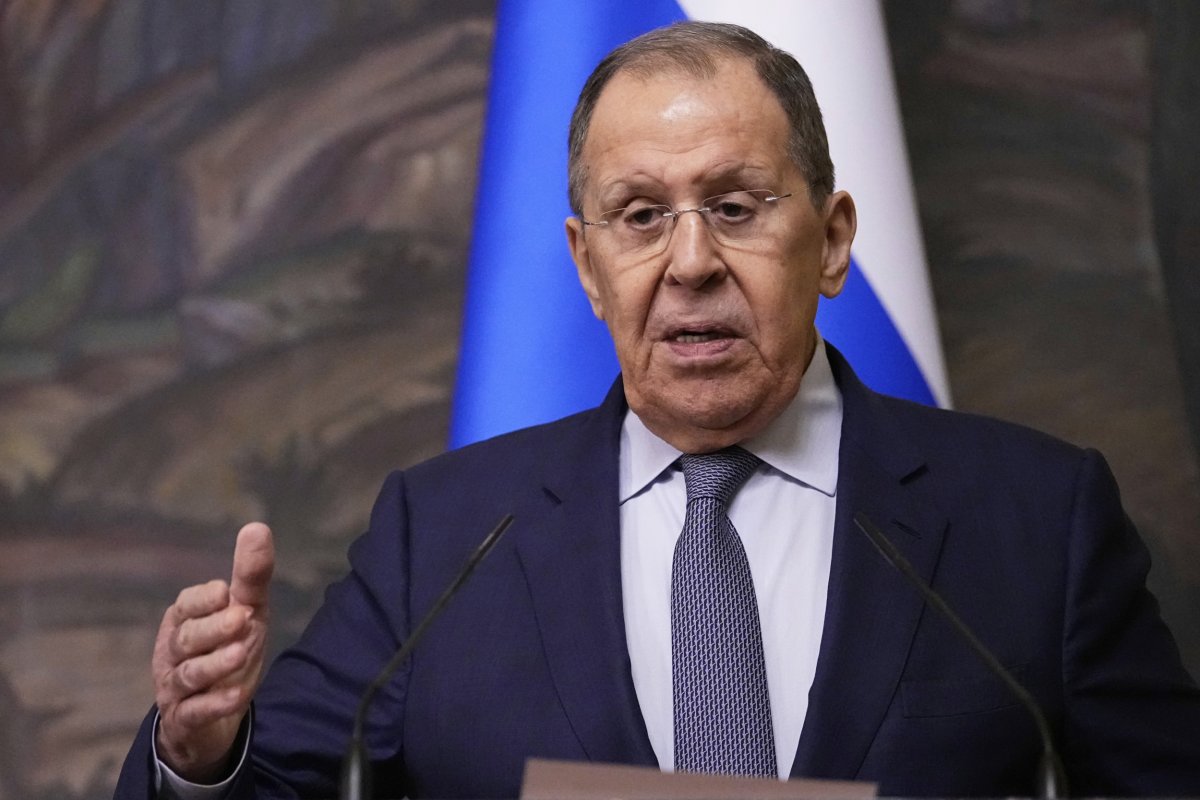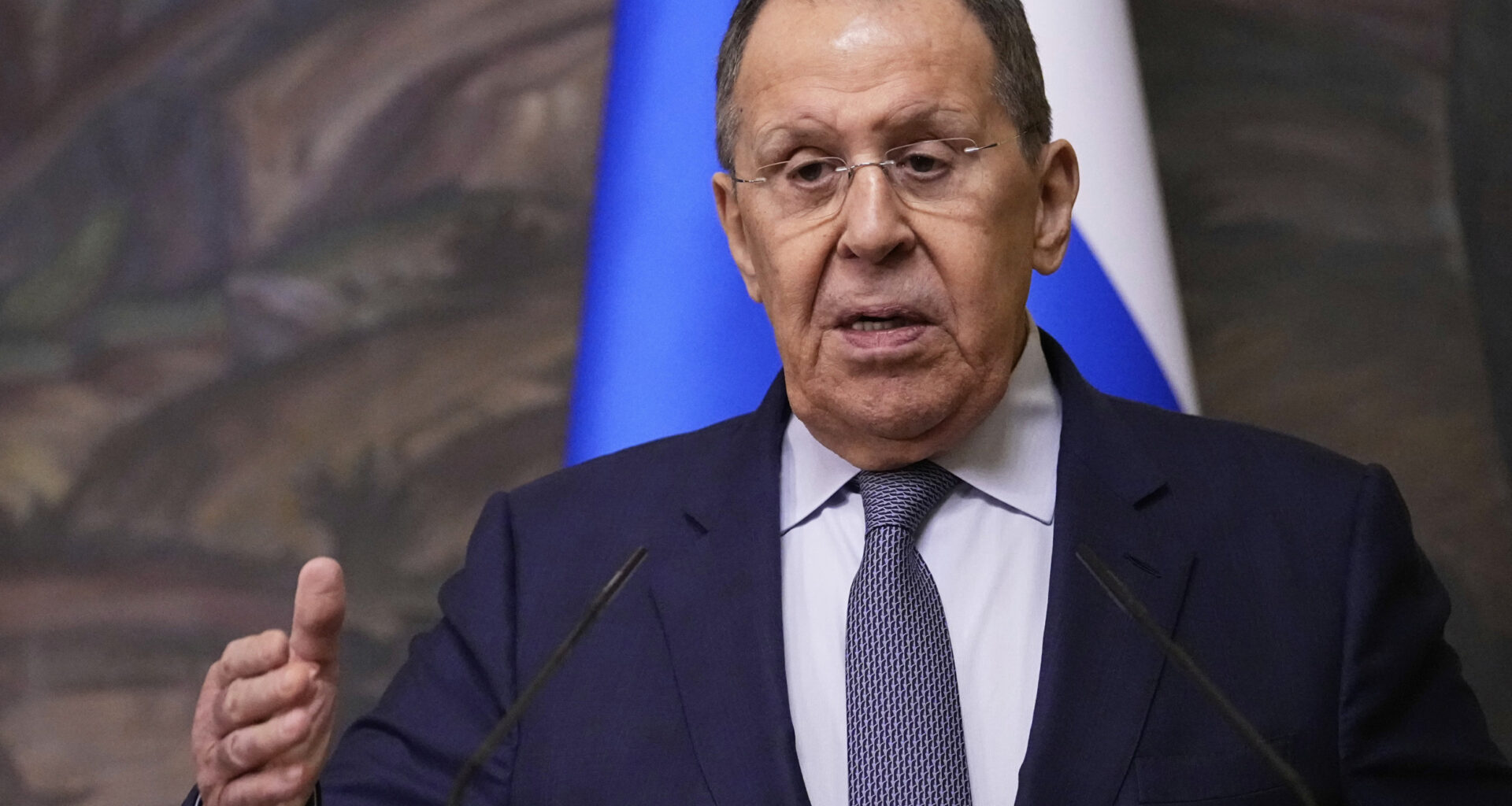Russia’s foreign minister, Sergey Lavrov, has predicted that the dramatic increase in NATO defense spending agreed last week will lead to its collapse.
Responding to the statement on Thursday from Poland’s foreign minister, Radoslaw Sikorski, that an arms race between Russia and the West could result in the fall of Vladimir Putin, Lavrov said: “He can probably see—since he is such a wise sage—that the disastrous increase in spending of NATO countries will also lead to the collapse of this organization.”
“Meanwhile, Russia—as President [Vladimir Putin] said the other day in Minsk after the Supreme Eurasian Economic Council meeting—plans to reduce its military spending and be guided by common sense, rather than imaginary threats, as NATO member states do, including Sikorski,” he said, according to Russia’s state TASS news agency.

Russian Foreign Minister Sergey Lavrov speaks during a joint news conference with Laos’ Minister of Foreign Affairs Thongsavanh Phomvihane following their meeting in Moscow, Russia, Thursday, June 26, 2025.
Russian Foreign Minister Sergey Lavrov speaks during a joint news conference with Laos’ Minister of Foreign Affairs Thongsavanh Phomvihane following their meeting in Moscow, Russia, Thursday, June 26, 2025.
AP Photo/Alexander Zemlianichenko, Pool
In an interview with the AFP news agency last week, Sikorski said: “Putin should understand that he is on the path of (Soviet leader Leonid) Brezhnev. He himself once said that the Soviet Union collapsed because it spent too much on armament, and now he is doing exactly the same thing.”
NATO leaders’ ‘ironclad commitment’
NATO leaders reached a historic agreement last week to significantly increase defense spending, following strong pressure from U.S. President Donald Trump. The 32-member alliance voiced an “ironclad commitment” to mutual defense in the event of an attack, reaffirming its core collective security principle.
In a joint summit statement, the leaders pledged to allocate 5% of their GDP annually to core defense needs and related security spending by 2035, aiming to strengthen both individual and collective security obligations.
NATO Secretary-General Mark Rutte hailed the summit as “transformational.”
Trump called the spending boost “something that no one really thought possible. And they said, ‘You did it, sir. You did it.’ Well, I don’t know if I did it, but I think I did.”
However, not all members are on board. Spain has already made it clear it cannot meet the target, and other countries have raised concerns. Still, the agreement includes a 2029 review, which will coincide with the next U.S. presidential elections, to assess the progress and recalibrate NATO’s response to Russia’s growing threat.
The alliance also reaffirmed its commitment to mutual defense, with a renewed emphasis on the principle that “an attack on one is an attack on all.” Trump had cast doubt on the U.S.’s readiness to defend its allies in the lead-up to the summit.
“Together, allies have laid the foundations for a stronger, fairer, and more lethal NATO,” Rutte told reporters following the meeting in The Hague. “This will fuel a quantum leap in our collective defense.”
This article includes reporting from The Associated Press.
